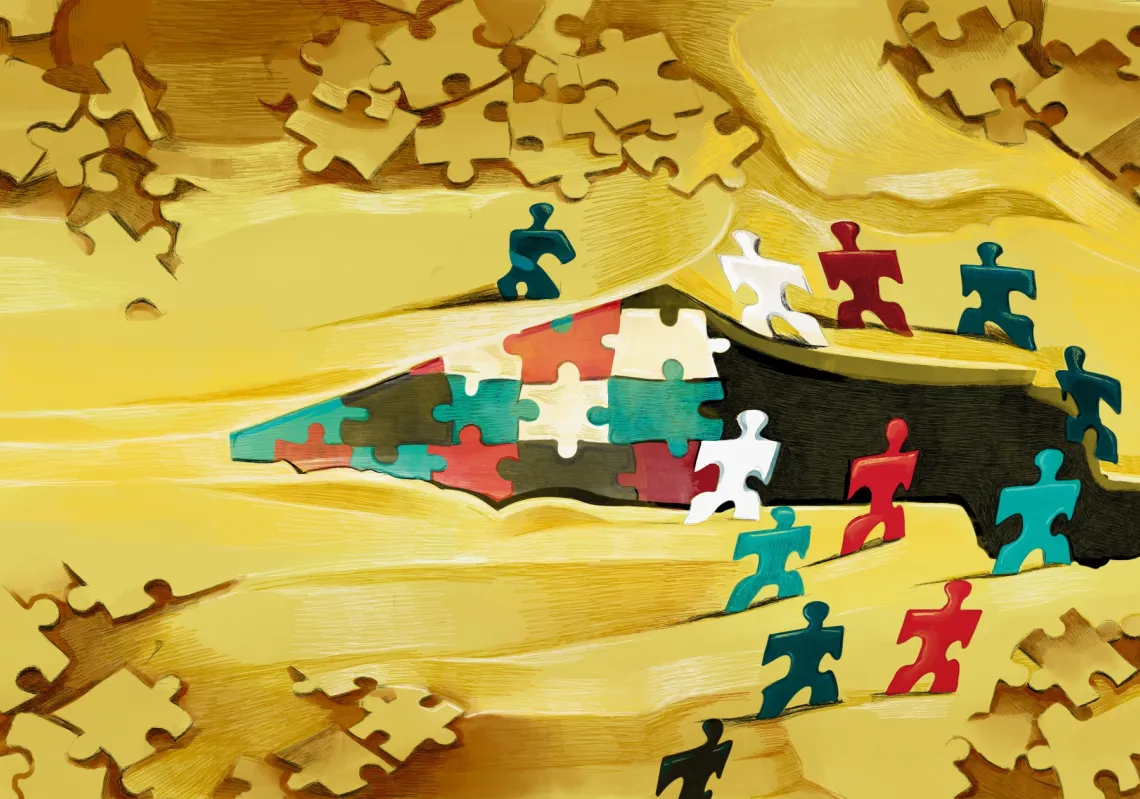The Kurdistan Workers Party (PKK) militant group, which has been locked in bloody conflict with Türkiye for more than four decades, made a groundbreaking and historic announcement on Monday, declaring it would disband and end its armed struggle.
In a recently released closing declaration of a congress that the PKK held last week in northern Iraq, where it is based, a statement read: "The PKK has completed its historic mission and has decided to dissolve its organisational structure, with the practical process to be managed and carried out by Leader Apo (a reference to PKK leader Abdullah Öcalan).
"The PKK struggle has broken the policy of denial and annihilation of our people and brought the Kurdish issue to a point of solving it through democratic politics," the statement added.
In February, the PKK leader, who has been in a Turkish prison for more than two decades, called for a conference to be held, with the disbandment of the group to be deliberated.
On 8 May, the Kurdistan Workers’ Party (PKK) released a brief statement. Between 5 and 7 May, the group held its 12th Congress and teased a "big" announcement.
The move to disband is set to have far-reaching political and security consequences for the region, including in neighbouring Iraq and also in Syria, where US-allied Kurdish forces operate. But as important as the declaration may be, it is not a definitive breakthrough. According to sources familiar with negotiations between the PKK and the government of Türkiye, several unresolved issues remain. These sources describe the declaration as an interim step designed to ease public pressure, deflect criticism, and convey the message that progress is being made, albeit slowly.
Apparently, whatever the problems were, they have been solved, and the PKK has finally come up with the long-awaited declaration. Now, what needs to be seen is the implementation and whether the declaration will have the hoped-for implications on Türkiye.

Designated terror group
Founded 52 years ago by Öcalan, the PKK has waged an armed campaign that has claimed over 40,000 lives. It is designated a terrorist organisation by Türkiye, the US, and the EU, and Öcalan has been imprisoned in isolation on Imrali Island, located in the Sea of Marmara, since 1999.
The so-called ‘Terror-Free Türkiye’ peace process entered the sunlight on 22 October Last year, when Devlet Bahçeli, leader of the far-right Nationalist Movement Party (MHP), called on Öcalan to declare an end to the PKK and its activities. The government has maintained tight control over the process, revealing information to the public selectively and cautiously—the expectation being that the PKK will dissolve itself through an internal decision at a formal congress.
The congress took place in Sulaymaniyah, northern Iraq, with Öcalan and other senior PKK commanders attending via video link. In parallel, representatives of the pro-Kurdish Peoples’ Equality and Democracy Party (DEM Party)— the third largest political party in Türkiye’s parliament—and government officials have been in discreet talks for weeks.
Both sides do not like to refer to these talks as negotiations, but that is what they are. As part of the process, a DEM Party delegation visited Öcalan in prison, consulted with PKK commanders in northern Iraq, and held discussions with Kurdish political factions. The latter included the Patriotic Union of Kurdistan (PUK) and the Kurdistan Democratic Party (KDP) in Iraq and the People’s Defence Units (YPG) in Syria.
There are still many questions surrounding the declaration. How and where the PKK will lay down its arms remains unclear. How would such a move be verified? Would there be a general amnesty? And what would happen to militants wanted for acts of terrorism and manslaughter?

List of demands
On the political front, it is assumed that the PKK has submitted a list of demands and that the Turkish government has made promises in return. No details, however, have yet been released. The government, meanwhile, insists it has made no concessions— a claim that strains credulity. Pervin Buldan, a senior member of the DEM Party delegation, said it is now the turn of Türkiye to take steps on democratisation. The DEM Party Central Executive Board is expected to convene early next week to announce a concrete roadmap and list of proposals.
The PKK declaration stipulates that implementing these decisions requires Öcalan to lead and direct the process, the recognition of the right to democratic politics and solid legal guarantees. These are very sensitive issues, and also sound like conditions for peace.
The PKK has demanded Öcalan be set free, and many observers believe he will be granted amnesty. However, he is said to have told Turkish authorities he doesn't want to leave the island, basically for fear of assassination and provocation, requesting instead improved living conditions and protection.
Despite years of hostility towards the PKK, Turkish public opinion has not erupted in fury at these developments. The government's propaganda machinery has been effective in controlling the narrative, while the ruling AKP, which has long accused the main opposition Republican People's Party (CHP) of cooperating with the PKK via the DEM Party, now finds itself engaged in negotiations with the same actors. Potential opposition from Turkish nationalists is being prevented – if not outright suppressed.
Ümit Özdağ, leader of the Zafer Party and a vocal critic of the AKP-MHP alliance, was arrested and imprisoned in January. He was accused of inciting hatred against Syrian refugees and insulting President Erdoğan. However, many are convinced his arrest stems from his potential to mobilise opposition to Öcalan's release and destabilise the peace process.













